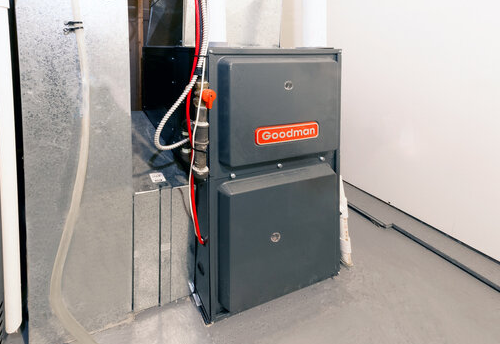When it comes to choosing a heating system, homeowners often compare gas, electric, and oil furnaces to find the best fit for their needs. Each type of furnace has unique benefits, drawbacks, and long-term considerations. Whether you are building a new home, upgrading an older unit, or planning a Furnace Installation Kansas City, KS, understanding how these systems work can help you make an informed decision.
The Role of Furnaces in Home Comfort
A furnace is the heart of a heating system. It provides consistent warmth during cold months, regulates indoor comfort, and affects energy bills. Choosing the right type of furnace is not just about heating power—it also involves fuel availability, efficiency, cost, and environmental impact.
Before diving into comparisons, it’s important to consider:
-
The climate in your area
-
Your home’s size and insulation
-
Local fuel costs and availability
-
Long-term maintenance requirements
With these factors in mind, let’s explore the main differences among gas, electric, and oil furnaces.
Gas Furnaces: Efficiency Meets Popularity
Gas furnaces are one of the most common heating options in the United States. They use natural gas as a fuel source and are known for efficiency and reliability.
Advantages of Gas Furnaces
-
High efficiency: Modern gas furnaces often achieve efficiency ratings of 90% or higher.
-
Lower operating costs: Natural gas is usually less expensive than electricity or oil.
-
Strong heating power: Ideal for regions with colder winters.
-
Wide availability: In cities with established gas lines, installation is straightforward.
Drawbacks of Gas Furnaces
-
Upfront installation costs: More expensive to install compared to electric units.
-
Maintenance needs: Require regular servicing to ensure safe operation and prevent gas leaks.
-
Not always available: Homes in rural areas may not have access to natural gas lines.
Gas furnaces are often the preferred choice for homeowners who want powerful, efficient heating with long-term savings.
Electric Furnaces: Simplicity and Low Upfront Costs
Electric furnaces use electricity to generate heat, making them a straightforward and widely accessible option.
Advantages of Electric Furnaces
-
Lower installation costs: Less expensive to purchase and install.
-
Safety: No risk of carbon monoxide leaks or gas explosions.
-
Availability: Can be installed anywhere with electrical service.
-
Durability: Fewer moving parts mean a longer lifespan and fewer repairs.
Drawbacks of Electric Furnaces
-
Higher operating costs: Electricity is often more expensive than natural gas or oil.
-
Slower heating: May not provide the same quick warmth as gas units.
-
Not ideal for cold climates: Running costs can add up quickly in areas with long, harsh winters.
Electric furnaces are best for smaller homes, milder climates, or situations where gas and oil options are unavailable.
Oil Furnaces: Powerful Heating for Cold Regions
Oil furnaces are less common today but remain a strong option in areas without natural gas infrastructure. They burn heating oil stored in a tank, providing reliable warmth.
Advantages of Oil Furnaces
-
Strong heating capacity: Capable of generating very high heat output, making them suitable for extremely cold climates.
-
Independence from gas lines: Works well in rural areas without natural gas service.
-
Durability: With proper maintenance, oil furnaces can last 20–25 years.
Drawbacks of Oil Furnaces
-
Fuel storage required: Homeowners need an oil storage tank, which takes up space.
-
Fluctuating fuel prices: Heating oil prices can rise and fall dramatically.
-
More maintenance: Oil furnaces produce soot and residue, requiring frequent cleaning and servicing.
-
Environmental concerns: Burning oil releases higher emissions compared to natural gas.
Oil furnaces are a reliable choice for rural homeowners who need a powerful heating system but must be prepared for higher maintenance and fluctuating costs.
Comparing Costs and Efficiency
When comparing gas, electric, and oil furnaces, cost and efficiency play a major role.
-
Initial Installation Costs: Electric furnaces are generally the cheapest to install, while gas and oil require more complex systems.
-
Operating Costs: Gas furnaces usually offer the lowest monthly heating bills, while electric tends to be the most expensive in cold regions.
-
Maintenance Costs: Oil furnaces require more frequent servicing, while electric furnaces demand the least.
-
Lifespan: Electric furnaces can last up to 30 years, gas furnaces 15–20 years, and oil furnaces around 20–25 years with proper maintenance.
Environmental Considerations
Sustainability is another factor homeowners are considering today. Gas furnaces are cleaner than oil but still release emissions. Electric furnaces, while emission-free at home, rely on the energy grid, which may or may not use renewable sources. Oil furnaces produce the highest emissions but can be paired with biofuels for a greener alternative.
Choosing the Right Furnace for Your Home
When deciding which furnace is right for your household, ask yourself:
-
How cold are the winters where I live?
-
Do I have access to natural gas?
-
What are local electricity and fuel costs?
-
How much maintenance am I willing to handle?
-
Do I want the most eco-friendly option available?
Homeowners in urban areas with access to gas lines usually find gas furnaces the best balance of cost and performance. Those in rural areas may prefer oil furnaces, while electric furnaces make sense in warmer climates or for budget-conscious installations.
Final Thoughts
Furnaces are a long-term investment that directly impacts home comfort and monthly expenses. Comparing gas, electric, and oil systems helps homeowners make informed decisions based on cost, efficiency, and availability. Before moving forward with a Furnace Installation Kansas City, KS, it’s wise to consult a professional who can assess your home’s size, insulation, and fuel options.
By weighing upfront costs, long-term energy use, and environmental impact, you can select a furnace that keeps your home warm, efficient, and comfortable for years to come.




